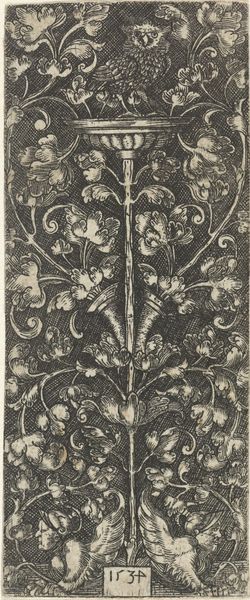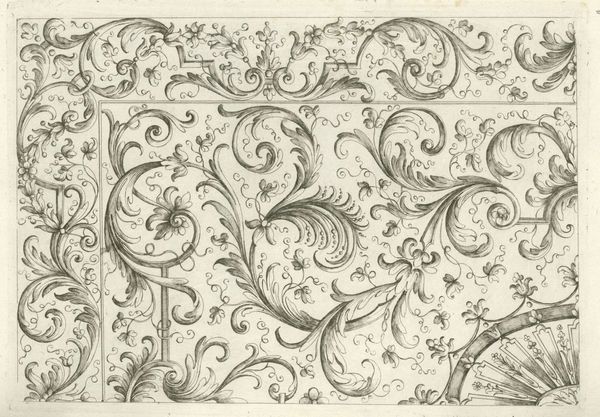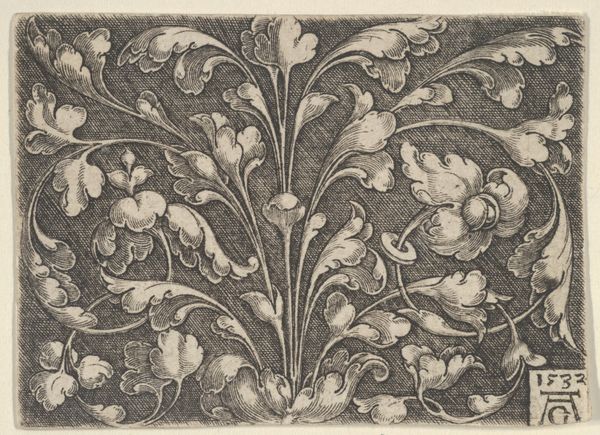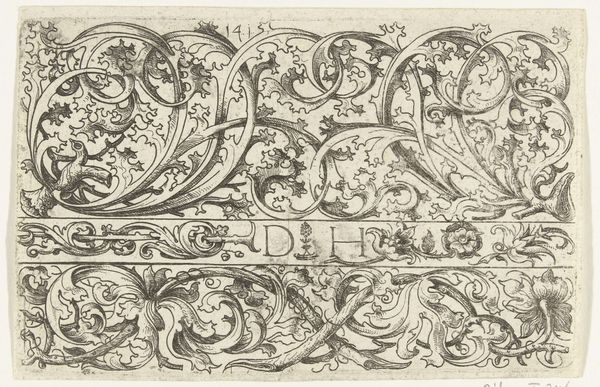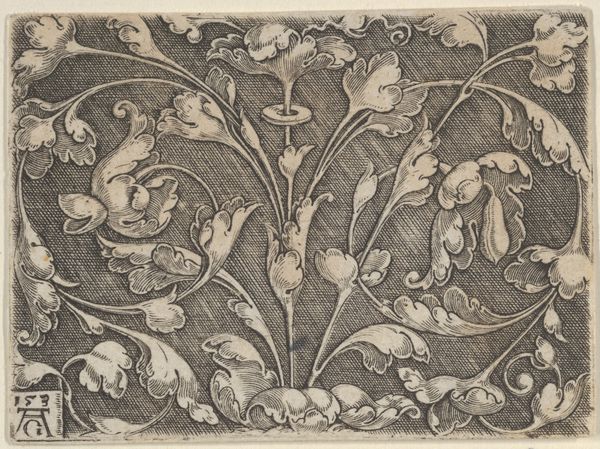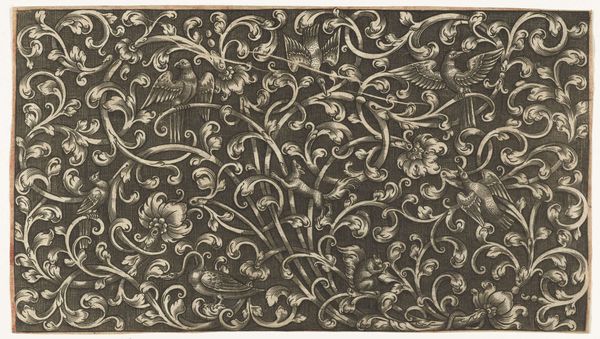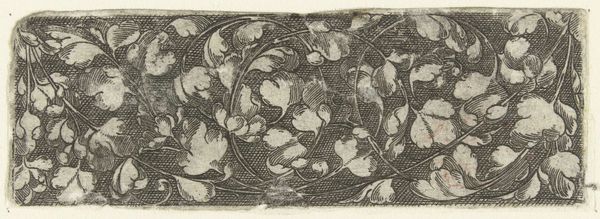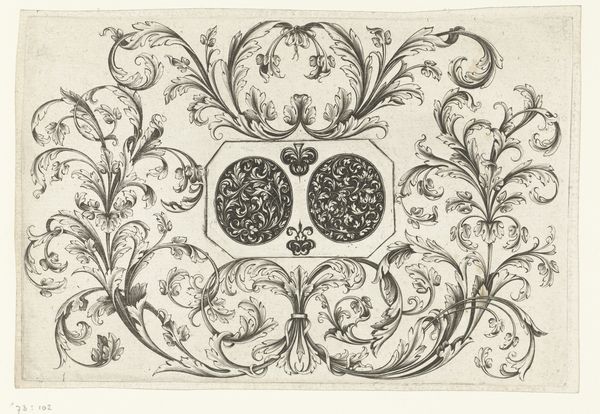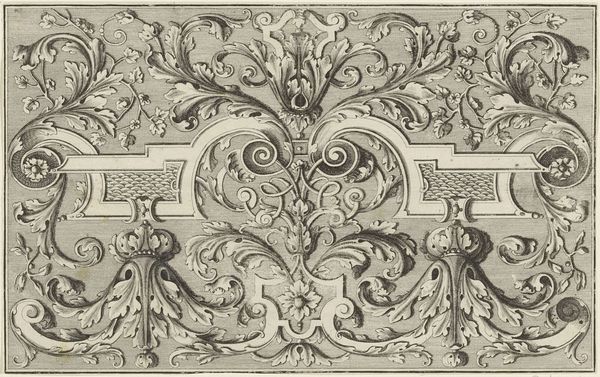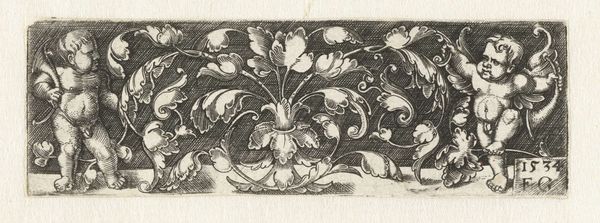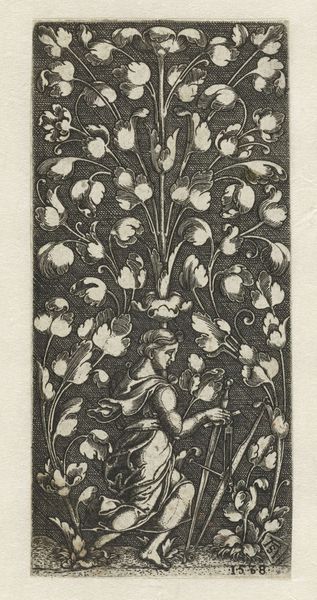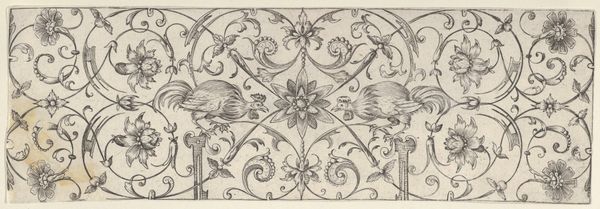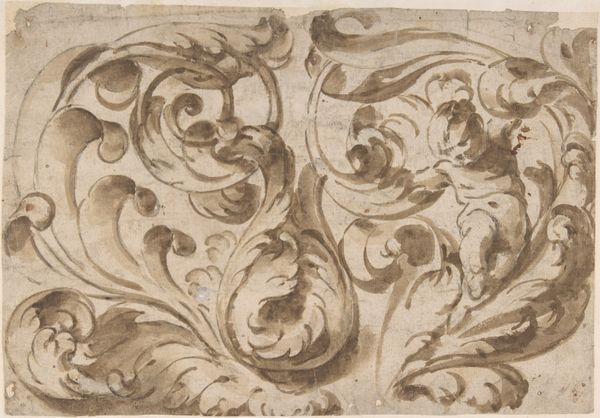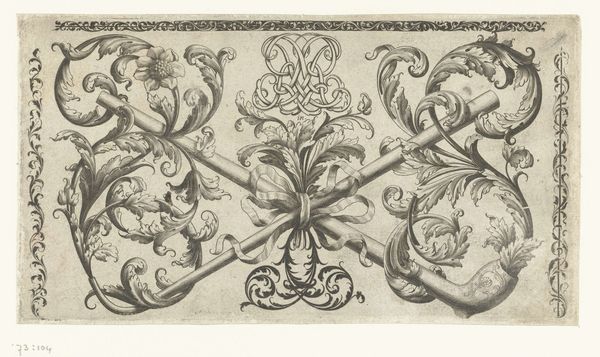
drawing, print, engraving
#
drawing
#
pen drawing
# print
#
ink line art
#
11_renaissance
#
geometric
#
line
#
northern-renaissance
#
engraving
Dimensions: height 61 mm, width 39 mm
Copyright: Rijks Museum: Open Domain
Editor: So this print, "Drie stengels met bladeren" which translates to "Three Stems with Leaves", is an engraving from around 1500 to 1600, by an anonymous artist. The lines are so precise and delicate; I'm struck by how contemporary the design feels despite its age. What stands out to you when you look at this image? Curator: The first thing I notice is how the formal constraints – the black ink against the aged paper and symmetrical composition – contrast so strikingly with the natural subject matter. We can view these botanical illustrations as quiet assertions of the power and importance of the natural world. How can we read into the choice of presenting a relatively simple drawing through this technique? Editor: Interesting! It also seems that although we're meant to see the artwork in the Western literal sense of plants and foliage, there's also the implication that the image carries a sense of self-worth, and independence due to the geometric layout. Curator: Exactly. Considering this print was made during the late Renaissance, a period defined by increasingly rigid social structures and the emergence of early capitalism, how does the seemingly simple choice of subject matter carry political and perhaps feminist implications? What kind of audience might have identified with and claimed the imagery in that period? Editor: Hmm, it would be an emblem of empowerment because owning art signaled the elite. A botanical image that can be owned? It really speaks about human’s role within nature’s bigger environment. Curator: Right, or what if they were signs or markers used by common folks for herbal knowledge, which might challenge established medical and academic authority? It may not be what the artist intended, but these alternative viewpoints have power. What I appreciate about the piece now, thanks to our conversation, is how much potential for change the piece possesses. Editor: Yes, seeing how such simple imagery could hold such subversive undertones is so relevant!
Comments
No comments
Be the first to comment and join the conversation on the ultimate creative platform.
